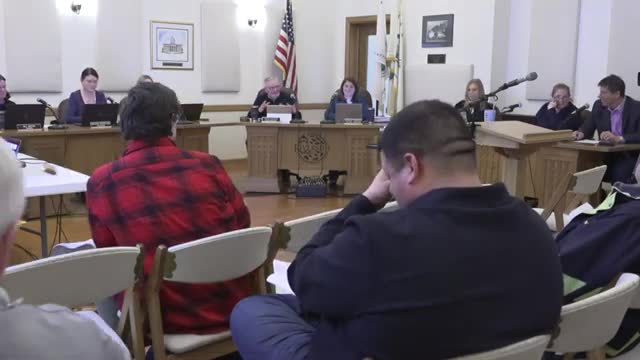Riverside weighs rules for food trucks; board asks Economic Development Commission and Chamber for input
Get AI-powered insights, summaries, and transcripts
Subscribe
Summary
Staff recommended using the special-event application to regulate food trucks, charging event-based fees and considering a separation distance from brick-and-mortar restaurants; the board asked staff to solicit input from the Economic Development Commission and the Chamber of Commerce before returning with proposals.
Village staff presented options Feb. 20 for updating Riverside’s approach to mobile food vendors, including permitting food trucks through the village’s special-event application, requiring health and insurance documentation, and setting either a separation distance from fixed restaurants or differing fee structures for regular operators versus occasional event vendors.
Assistant Manager Ashley Monroe told trustees the village has permitted food trucks for special events and on private property under business licenses, but the village code has no standardized requirements for siting, spacing or fees for mobile vendors. Staff recommended either integrating food trucks into the special-event permitting process or setting a separation requirement (for example, 100–300 feet) from brick-and-mortar restaurants. Monroe said the finance department suggested a higher annual business license fee for year-round mobile vendors to offset the village’s lost "places for eating" sales-tax base; staff proposed an annual fee of $1,000 for regularly operating mobile vendors but said event-based uses could be covered by a smaller special-event fee.
Bill McCluskey, who operates the gas station at 3346 S. Harlem and hosts a regular truck, told trustees his business has invested heavily in the site and the truck partnership has increased customer traffic. “We’ve been doing it Thursday through Sunday every week,” McCluskey said, asking the board to allow his arrangement to continue while the village refines policy. Prime Taco owner Anthony said his truck follows health inspections and licensing schedules and that the mobile operation supports his family and community work.
Why it matters: Staff showed a map illustrating that a 300-foot buffer in downtown Riverside would encompass most commercial parcels and discussed tradeoffs between protecting fixed-location restaurants and enabling mobile vendors to add business activity. Trustees noted competing interests: some members voiced support for the added customer activity a successful food truck can generate, while others asked for formal business-community input before any restrictions are imposed. Trustee Atkins specifically requested a formal opinion from the Economic Development Commission and the Chamber of Commerce.
Next steps: The board asked staff to notify the Economic Development Commission and the Chamber and to return with more narrowly scoped options (for example: special-event permitting only, a limited number of regular permits in designated commercial zones, or a distance/separation standard with private-property carve-outs). Meanwhile, staff indicated current operations may continue while the policy work proceeds; formal code or fee changes will be returned to the board for action.
